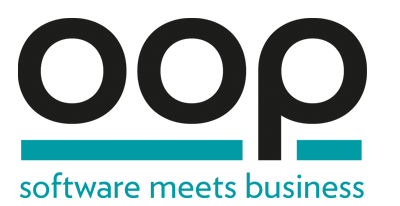Please note:
On this page you will only see the English-language presentations of the conference. You can find all conference sessions, including the German speaking ones, here.
The times given in the conference program of OOP 2024 correspond to Central European Time (CET).
By clicking on "VORTRAG MERKEN" within the lecture descriptions you can arrange your own schedule. You can view your schedule at any time using the icon in the upper right corner.
Thema: Agility
- Montag
29.01. - Dienstag
30.01. - Mittwoch
31.01. - Donnerstag
01.02. - Freitag
02.02.
Are you ready to take your agile development practices to the next level? Join us for a hands-on and interactive workshop where we will explore the interdependencies of eXtreme Programming (XP) practices and how they can help you achieve success in your agile journey. Using the powerful technique of Wardley Mapping, we will uncover the gaps in your agile adoption and gain a new understanding of your actual agile capabilities.
Laptop (with browser access) is required.
Target Audience: Architects…
Explore Agile Leadership in this interactive workshop. Delve into the adaptability of Agile Leadership, understand its context-dependency, and utilize our Leadership Assessment to gain insights into your leadership style. Strategize how to adjust your leadership behaviors for greater effectiveness within your team and organization.
Target Audience: Managers, Technical Leads, Scrum Masters, Agile Coaches, Software-Architects, Product Owners
Prerequisites: Basic Understanding of Agile, Team…
This is not about what an "Agile Architecture" could be. It is about the view from the opposite direction:
How can architecture work look like in order to act as an enabler to work in the spirit of the Manifesto for Agile Software Development?
There are answers to questions like.
• Why is architecture documentation so rarely read?
• How much technology focus is helpful and why?
• What knowledge needs to be built by yourself in the first place?
• What does programming have to do with…
This session will provide you with insights into the core skill of slicing work and how it is crucial to business agility. Using real-life scenarios, we'll explore the different dimensions of how slicing affects work, including ease of delegation, adapting scope, quality control, measuring and assessing progress, and improving using feedback.
This session will give you inspiration and practical tips for how to slice your projects differently.
Target Audience: Decision Makers, Managers, Project…
In this session, two co-creators of Org Topologies™, Alexey Krivitsky and Roland Flemm, will share a method to design, assess and improve your organizational ecosystem.
They will do that by familiarizing you with a set of organizational archetypes that are easy to spot. Hopefully, you will have much better clarity on which organization ecosystem you want to build and which behaviors you expect it to exhibit.
You shall be able to take this tool home and use it as a map in your ongoing,…
After years of contributions, there is still a disconnection at the boundary between the leadership development world and agility. On one side, there are proposals on the role of the leader. On the other side, “frameworks for scaling”.
Especially at scale, agile leadership is the art of integrating modern collaborative leadership concepts and sound emergent strategies for organisational development.
In this interactive session, we will discuss the overarching structure of agile leadership and…
Sustainable success for agile in the large needs leaders to shift their focus from managing people to managing the system so that people can thrive.
This session builds on our successful OOP 2023 session ("Pragmatic Scaling to Business Agility: Crafting Organisations for Innovation where People can Thrive") by:
- Focussing on how leadership should be different in an agile organisation.
- Sharing experiences of applying the model with real clients.
Participants will assess their own leadership and…
In this interactive training session, we will dive into the fascinating world of exploratory testing. Exploratory testing is a mindset and approach that empowers testers to uncover hidden defects, explore the boundaries of software systems, and provide valuable feedback to improve overall quality.
Through a combination of theory, practical examples, and hands-on exercises, participants will gain a solid understanding of exploratory testing principles and techniques, and learn how to apply them…

